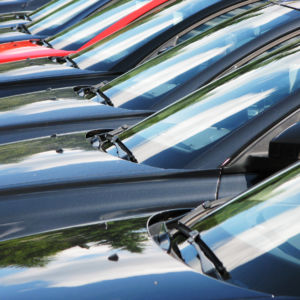On Thursday, the Trump administration announced that it was planning to revoke the waiver that allowed California to set its own emissions standards for cars and trucks. The administration also said that is going to work to roll back the CAFE standards, fuel economy mandates set during the Obama administration. These guidelines require that car makers reach a fleet average of 54.5 miles per gallon by 2025. After the rule change, their new goal would be around 37 mpg. U.S. automakers have kept quiet about the rule change, but environmental groups are already bemoaning the damages they believe increased emissions will cause.
When announcing the proposed rulemaking, the Environmental Protection Agency (EPA) and the Department of Transportation (DOT) said that getting rid of the standards would lower prices, increase safety, and lead to a cleaner environment. CAFE standards began in the 1970s as a means of lowering American dependence on foreign oil. During the Obama administration, they were amended to include aggressive fuel efficiency goals that applied to an automaker’s entire fleet.
“There are compelling reasons for a new rulemaking on fuel economy standards for 2021-2026,” said Transportation Secretary Elaine L. Chao. “More realistic standards will promote a healthy economy by bringing newer, safer, cleaner and more fuel-efficient vehicles to U.S. roads and we look forward to receiving input from the public.”
Although auto industry figures had supported rolling back the standards during meetings with President Trump in 2017, they have said little about the rule change. CEOs, including Ford CEO Jim Hackett and Chairman Bill Ford, have stated relatively recently that they supported the standards and were not asking for a rollback.
Even so, automakers will see reduced regulatory compliance costs. Under the Clean Air Act, California is allowed to enforce stricter vehicle emissions standards than those mandated under federal law. Other states can choose to follow either the California standards or the federal ones. About 40 percent of the American auto market uses the California standards. For automakers, this dual standard situation increased the costs of complying with regulation.
The real winners may be American consumers, who will are likely to see more choices and lower prices. According to estimates in a Heritage Foundation study, the Obama mandate added $3,800 to the cost of new cars by 2016. They further predicted that the cost of the mandate would increase by an additional $3,000 by 2025.
“Reforming Corporate Average Fuel Economy (CAFE) standards is a huge tax cut for American car buyers, up to a $7,200 per vehicle. This unnecessary and hidden tax has burdened American consumers since the 1970s. CAFE standards have failed on every front,” said Steve Forbes, honorary chairman of Americans for Hope, Growth and Opportunity, a grassroots public policy group.
The administration says that these lower consumer costs will, paradoxically, help the environment. Higher production costs for cars meeting the more stringent CAFE emissions standards pushed the price of new cars to above $30,000, above the reach of many American households. The administration says that the best way to help reduce emissions is to help put newer cars on the road and the best way to do this is to reduce prices.
“Our proposal aims to strike the right regulatory balance based on the most recent information and create a 50-state solution that will enable more Americans to afford newer, safer vehicles that pollute less,” the EPA Administrator Andrew Wheeler said. “More realistic standards can save lives while continuing to improve the environment.”
The administration is arguing that changing the CAFE standards will make cars safer by discouraging the production of very light vehicles, which may not be as resilient in the face of a crash, and by helping to put new cars on the road. Today, the average American car is about 12 years old and does not have the advantage of many of the advances that have been made in vehicle safety.
Environmental groups, however, see the matter as an attack on their goals and vowed to continue to work to overturn the proposed change during the comment period.
“The clean car standards and the right of states to protect their residents enjoy overwhelming support and are backed by numerous scientific studies. Andrew Wheeler and [National Highway Traffic Safety Administration Administrator] Heidi King’s plan is based on lies and alternative facts,” said Sierra Club Executive Director Michael Brune. “Make no mistake, the Sierra Club and the American people will continue fighting to protect the clean car standards and the health of our communities.”
To others, the CAFE standards change was more a matter of consumer empowerment than environmental catastrophe.
“The fundamental question associated with this mandate is clear: who should decide what types of cars consumers should buy, consumers themselves or bureaucrats in Sacramento or Washington? We think that answer is clear, and, consequently, welcome the Administration’s action,” said Thomas J. Pyle, President of American Energy Alliance.

